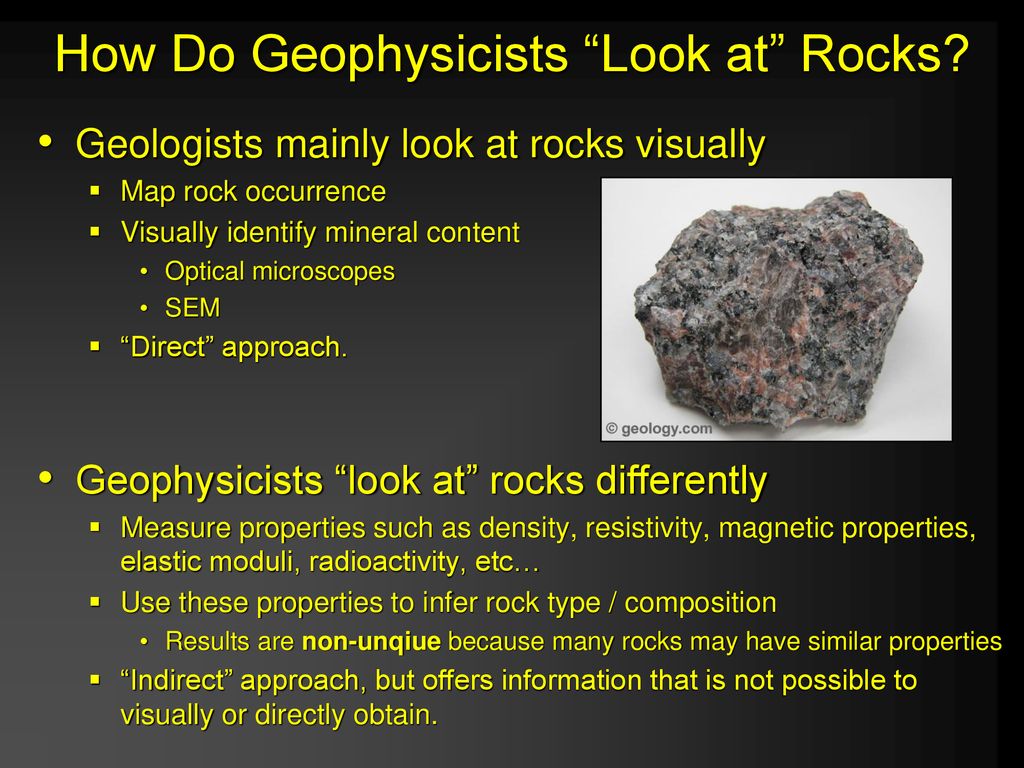All Categories
Featured
Table of Contents
Geological And Geophysical (G&g) Surveys in Myaree Western Australia 2020

Other possible geophysicist majors that aren't geophysics or geoscience include: Atmospheric sciences and meteorology Chemical and physical oceanography Earth science Environmental science Hydrology and water resources science Materials science By making any geophysicist degree, and by taking the necessary geology courses, you should certify for an entry-level position as a geoscientist or geophysicist.
Eventually, trainees must discover: a branch of geology that looks at the different aspects of minerals, including chemical structure, internal crystal structure, and physical properties. the study of rocks and the procedures and conditions that form and change them gradually. There are a few neighborhoods in this branch of geology, including igneous, metamorphic, and sedimentary rocks.

This field examines structural rock functions such as cleavage, faults, joints, and small folds. They need to also discover the computer skills necessary to: examine data create digital models and maps operate geoscientists' software application Trainees ought to likewise benefit from all chances to acquire real-world experience. Ambitious geophysicists need to anticipate to spend time knowing: in the classroom in the field in labs Clearly, skills taught in the classroom are really crucial for striving geophysicists.
What Does A Geophysicist Do? in Madeley Australia 2020
For instance, geoscientists spend a great deal of their time outside when working in the field, so they need to have "outside skills" like outdoor camping and running boats, aircraft, and other vehicles. Since they spend a lot time in remote places, it's vital that geophysicists likewise have the physical stamina to bring required equipment on their walkings to areas of study.
The task provides: a high typical and top profits a high rate of individual satisfaction among geophysicists low work stress favorable task outlook Further information on incomes potential and job outlook is detailed listed below. For trainees wanting to land an entry-level function as a geoscientist or geophysicist, it takes four years, or the time needed to finish a bachelor's degree in geophysics or an associated discipline.
Some research study positions in geophysics require doctoral degrees. If you plan to teach at a college or university, you need to earn a Ph. D. in geophysics or a related field. The time it requires to earn a Ph. D. differs by organization and program, but it normally takes 4 to 6 years beyond the bachelor's degree.
Geophysical Survey in Darch Oz 2021
The majority of companies need prospects to have a bachelor's degree in geophysics or a carefully related discipline for all entry-level positions. As an outcome, there's no way around the degree requirements for ending up being a geophysicist.
Currently, 31 states require licensing for geologists, although licensing is not always needed, especially for entry-level work. The states that do issue licenses utilize the Principles of Geology Exam (FGE), which is administered through the National Association of State Boards of Geology (ASBOG). Now that you understand which degree for geophysicist tasks you need, you'll require to land a task, and it's essential to find out just how much cash you can make in this profession.
According to BLS, the average yearly wage for geoscientists is $93,580. According to BLS, particular industries provide higher wages for geoscientists, and in some cases, they offer higher-than-average profits.
What Can I Do With A Major In Geophysics? in Oakford Aus 2021
Mining, quarrying, and oil and gas extraction provides over $32,000 more every year than the average annual wage for this profession. The federal government, too, uses over $10,000 more in earnings than the nationwide average for geoscientists. In addition to market type, geographic place can greatly affect revenues for this profession.

The top-paying states and their yearly mean wages, according to the BLS, include: Texas $166,720 Oklahoma $149,630 Pennsylvania $120,590 Hawaii $120,130 Colorado $107,260 These five top-paying states use much higher wages than the average for this occupation. In reality, earnings for geoscientists in Texas are over $73,000 greater than the national average.
It must come as no surprise that most of these high-paying locations are in Texas and Oklahoma, but some are found in California, Louisiana, and Colorado. The leading 10 highest-paying city areas for geoscientists are: Houston-The Woodlands-Sugar Land, Texas: $188,400 Tulsa, Oklahoma: $186,490 Midland, Texas: $167,040 Odessa, Texas: $147,080 Oklahoma City, Oklahoma: $145,350 Bakersfield, California: $130,080 Urban Honolulu, Hawaii: $124,470 New Orleans-Metairie, Louisiana: $121,030 Washington-Arlington-Alexandria, DC, VA, MD, WV: $120,180 Denver-Aurora-Lakewood, Colorado: $116,910 For some geoscientists and geophysicists, living in a metro city is not as attractive as residing in a smaller community.
Latest Posts
Geophysicist Job Description in Guildford Aus 2023
Marine Geophysical Surveying - in Maddington Aus 2023
Geophysical Survey - Suffolk Heritage Explorer in Millendon WA 2023